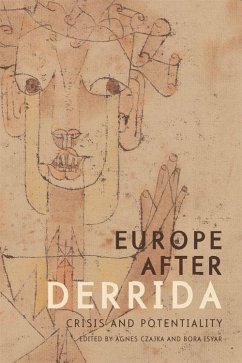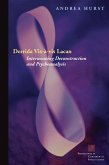'This is an outstanding collection of essays on the recent history, the contemporary predicament, and the future promise of Europe. Inspired by Jacques Derrida's reflections on Europe in The Other Heading and elsewhere, these essays pose critical questions regarding the past problems and the future prospects of Europe's geographical, economic, political, cultural and, especially, religious identity. It's a collection as unified and diverse, as compelling and provocative, as "Europe itself".' Michael Naas, De Paul University Having anticipated a crisis-to-come, what can Derrida offer today's Europe? Is Europe's dilemma merely a financial one? It has been widely understood as such, yet its scope and implications far exceed Europe's financial markets. As divisions widen and the previously unspeakable - the dissolution of Europe - begins to be whispered, the authors in this volume suggest that the contemporary crisis is a manifestation of an older and more fundamental one: the crisis of European identity centred on the questions of 'What is called Europe?' and 'How should Europe be?'. Diagnosed two decades ago by Jacques Derrida, it is a predicament to which Europe has thus far been unable to respond, yet one to which it must do so if it is to survive. Tackling issues ranging from Europe's legal, institutional and cultural identity to its border, citizenship and integration policies, and the legacies for the future, the book interrogates the multiple dimensions of Europe's crisis. By revisiting Derrida's diagnosis and working through his thought on, among others, hospitality, debt, cosmopolitanism and autoimmunity, Europe after Derrida offers an alternative response to the current orthodoxy of financial panic. The obstinacy of this crisis demands, the authors suggest, precisely such reengagement with Derrida's thought on Europe. Agnes Czajka is a lecturer in Politics and International Studies at the Open University. Bora Isyar is a lecturer in Political Theory at the National University of Ireland, Maynooth and a fellow at the Centre for the Study of Wider Europe. Cover image: Angelus Novus, Paul Klee, 1920 © Israel Museum in Jerusalem. Cover design: [EUP logo] www.euppublishing.com
Hinweis: Dieser Artikel kann nur an eine deutsche Lieferadresse ausgeliefert werden.
Hinweis: Dieser Artikel kann nur an eine deutsche Lieferadresse ausgeliefert werden.








